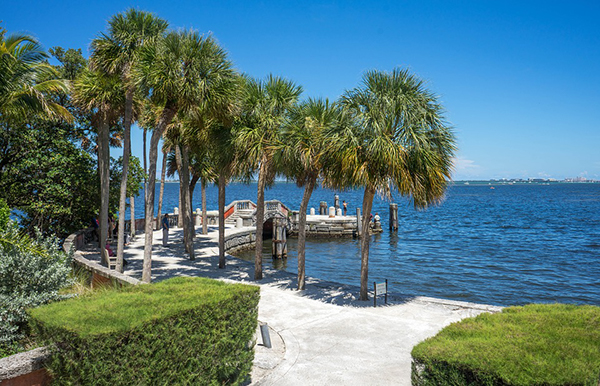If you’re trying to stay warm in your RV, chances are that you will be going south for winter. But south means different things to different people. Some people prefer the Southeast for a winter destination while many like the Southwest. Others are set on Texas for winter. Remember, these states also have winters. New Mexico, for example, is pretty darn cold December through February. For some RVers, nothing beats driving down to Mexico because warm weather is guaranteed and camping is cheap. Basically, you have many options if you’re considering keeping your RV out of storage this winter. There are lots of RV winter destinations that feel like summer all year long.
If you are looking to stay well within U.S borders, your options are within the Sun Belt, which stretches across the Southeast and Southwest. The most popular states for RVing during the winter months are Alabama, Arizona, Arkansas, California, Florida, Georgia, Louisiana, Mississippi, Nevada, New Mexico, North Carolina, Oklahoma, South Carolina, Tennessee, Texas and Utah.
The winters in these states are very mild and during daylight hours the weather is relatively warm.
RVing in the Southeast
Coastal areas like Myrtle Beach, South Carolina or Florida’s Atlantic and Gulf Coasts are very popular and sometimes densely packed with campers. For this reason, you’ll need to reserve a campsite in advance.
Many snowbird campsite destinations will already be taken months ahead of the season. In fact, at many RV parks visitors have annual reunions with other campers at the same location several years in a row. Expect campsites to be congested. If you’re highly social, this may appeal to you, but if you’re looking for lots of elbow room, you may want to consider heading west. Costs are also higher in the Southeast states and not just for camping amenities but also for gas and food. A less crowded and more economical option is to head to other states in the region like Mississippi, Texas, and Alabama. If you’re on a budget but you definitely want to visit, say, Florida, just reserve well in advance and book for the month, which is much cheaper than a shorter stay. This is all great if you’re familiar with the area, but if you’re new to the park and you’re not happy in your location, you’ll be stuck. Do as much research in advance as you can before booking a stay at a park you’ve never visited before.
RVing in the Southwest
For RVers who want to escape the cold and head Southwest, popular areas include Southern California, New Mexico, and Arizona. Here, the weather will be warm, with temperatures dipping low in the  evenings. Expect lots of wind storms if you’re camping in the dessert and remember to bring sweaters.
evenings. Expect lots of wind storms if you’re camping in the dessert and remember to bring sweaters.
If you’re on a budget, the great news is that just about everything is cheaper in this region. It’s also much more expansive with lots of elbow room. If you’re a fan of living off-grid, you’ll find some amazing, private and incredibly cheap places to set up camp. You’ll also find a nice assortment of fancy resort areas to park. If you’re looking to be spontaneous and roam from one park to another, you can actually do so in this region, especially during the winter season. If you’re craving a stay in the desert or near the beach, again, this may be where you want to go this winter.
Mexico in the Winter
There’s always Mexico too. Sure, these days it’s not as easy as simply flashing a driver’s license and getting through but it’s not all that difficult either, just have proper documentation like a passport. You will also need special Mexico Insurance for RVs, so be prepared ahead of time. It’s easy enough to purchase  Mexico Insurance online, but you definitely don’t want to wait and buy it from the kiosks at the border. You’ll need to have liability insurance at a minimum and it’s not cheap, but everything else in Mexico is!
Mexico Insurance online, but you definitely don’t want to wait and buy it from the kiosks at the border. You’ll need to have liability insurance at a minimum and it’s not cheap, but everything else in Mexico is!
If you are towing a vehicle, know that you have to buy insurance for both vehicles. Whether you’re buying insurance for your RV or trailer for the U.S or to go abroad, it’s best to speak with an Insurance Specialist (866-501-7335) to make sure you’re properly covered in the event of an accident, theft or any mishaps that you didn’t plan for.
The information in this article was obtained from various sources. This content is offered for educational purposes only and does not represent contractual agreements, nor is it intended to replace manuals or instructions provided by the manufacturer or the advice of a qualified professional. The definitions, terms and coverage in a given policy may be different than those suggested here and such policy will be governed by the language contained therein. No warranty or appropriateness for a specific purpose is expressed or implied.
